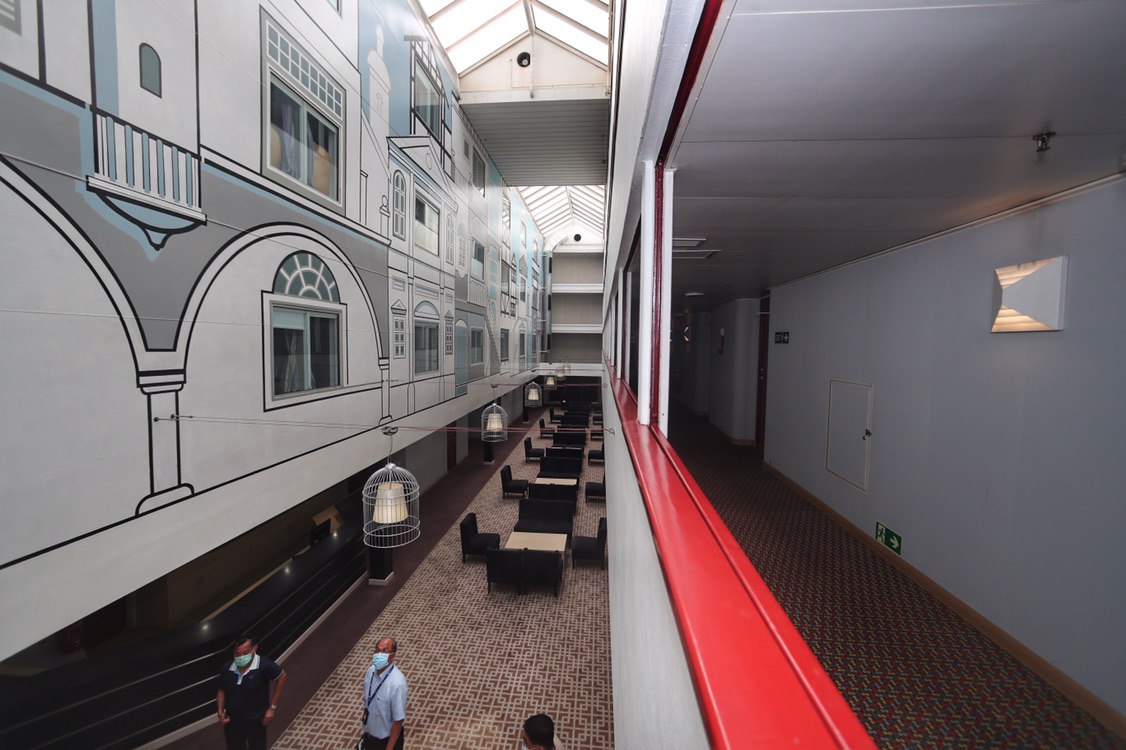Coronavirus: 2 floating accommodation at Tanjong Pagar Terminal to house foreign workers
Sign up now: Get ST's newsletters delivered to your inbox
SINGAPORE - Two floating accommodation facilities parked in a restricted area at Tanjong Pagar Terminal will house healthy foreign workers from this week.
Each can take a few hundred people, and be organised to achieve safe distancing, said Transport Minister Khaw Boon Wan, after a visit to one of the facilities on Sunday (April 12).
Meals can be prepared off-site and delivered to the cabins to minimise inter-mingling, he added in a Facebook post.
He said coronavirus clusters in foreign worker dormitories are a grave concern, and efforts are being made to reduce the density within each dormitory.
"In China, transmission within families has been shown to be a major driver. Each dorm is practically a huge family unit, hence our concern," said Mr Khaw, who is also Coordinating Minister for Infrastructure.
While building new dormitories will take time, making use of such floating accommodation facilities - typically used by those in offshore and marine industries - was another solution, he said.
Workers can have fresh air at the open air deck to exercise an hour a day, he added in his post. There is also a medical facility that can attend to workers who are ill.
They have to go though health checks, including swab tests for Covid-19, before boarding the facility.
They also have to follow public health measures such as minimising interaction with other occupants.



There is a deck where they go to exercise, but timing is staggered and limited on the floating accommodation docked at Tanjong Pagar terminal port on 12 Apr 2020
PHOTO: ST
Last Thursday, Minister for National Development Lawrence Wong, who co-chairs the multi-ministry task force tackling the outbreak, said during a press conference that the number of workers in each dormitory needs to be reduced so that effective public health measures can be put in place.
Foreign worker dormitories have been a growing source of concern in the outbreak.
More than 10 out of 43 dormitories in Singapore have been found to be clusters so far.


